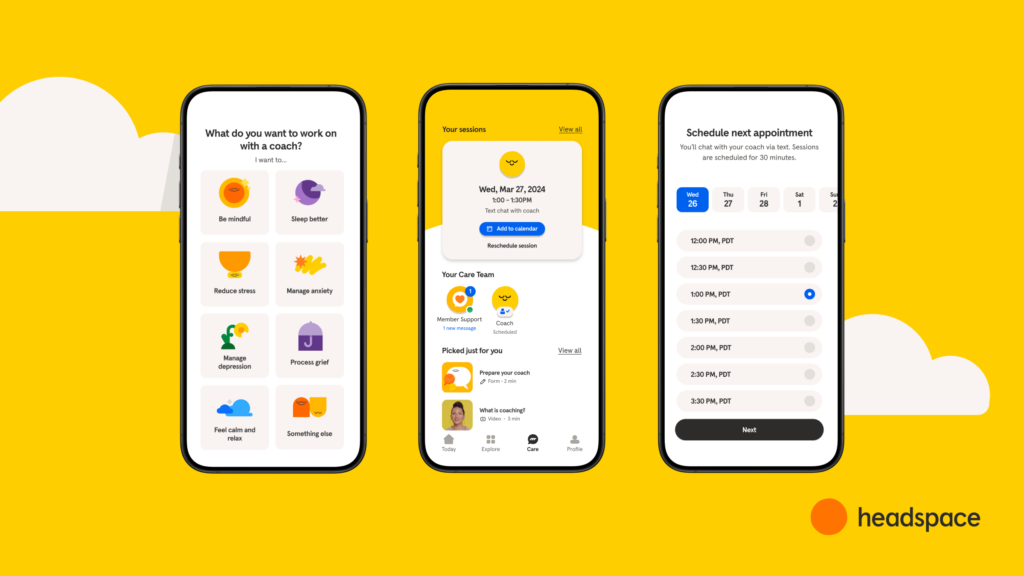
On Tuesday, Headspace announced that it is going toe-to-toe with the likes of Talkspace and BetterHelp by bringing its digitized mental health services directly to consumers — starting with text-based mental health coaching. Teletherapy services are also slated to become available to consumers later this year on the Headspace app.
Headspace — which was founded in 2010 and has primarily sold its platform to employers — helps users improve their mental health through meditation and mindfulness exercises. In 2021, the company completed a $3 billion merger with Ginger, a provider of digital mental health coaching, therapy and psychiatry services.
On the Headspace app, U.S. consumers can now access one-on-one guidance from the company’s mental health coaches. These coaches help users address life challenges that may not require a therapist, such as everyday stress, a breakup or starting a new job.

With the Rise of AI, What IP Disputes in Healthcare Are Likely to Emerge?
Munck Wilson Mandala Partner Greg Howison shared his perspective on some of the legal ramifications around AI, IP, connected devices and the data they generate, in response to emailed questions.
“Coaching can be an incredibly effective intervention for many people who could use a little extra support, yet there isn’t any company today that’s made this kind of care available to consumers at scale — creating a huge opportunity at a time when people continue to struggle with their mental health,” said Christine Hsu Evans, president at Headspace.
Headspace’s mental health coaches meet with members via text-based sessions, which the member can schedule at any time. Users who schedule a coaching session through the app’s consumer channel can expect to schedule an appointment within 48 hours after completing a few onboarding questions, Evans explained.
In partnership with the member, Headspace’s coaches work to build a goal-oriented mental health plan that is tailored to the member’s goals, she said.
“It’s a lower-cost, more accessible level of care that can help the majority of our members stay on track with goals and feel supported,” Evans stated.
Nearly half of Americans don’t get benefits through an employer. Due to this, Headspace has “heard loud and clear” from its consumer members that they want the company to move beyond offering them only mental health and mindfulness content, Evans added.
By establishing a direct-to-consumer channel, Headspace can now offer its services to anyone, she declared.
This means that the company is now competing with other mental health apps that offer their services directly to consumers. Evans believes that Headspace can stand out from the crowd, though.
“Most technology-enabled mental health care providers offer a therapy-centric or therapy-only model, where your mental health care ends when your session is over. And the reality is, most people don’t need a therapist — but many could benefit from the skills-based approach taken with mental health coaching, making coaching a great first step for people dealing with everyday stress, anxiety and life challenges,” she explained.
In her view, mental health coaching is “quickly achieving widespread adoption and acceptance” among the healthcare community.
Photo: Headspace














